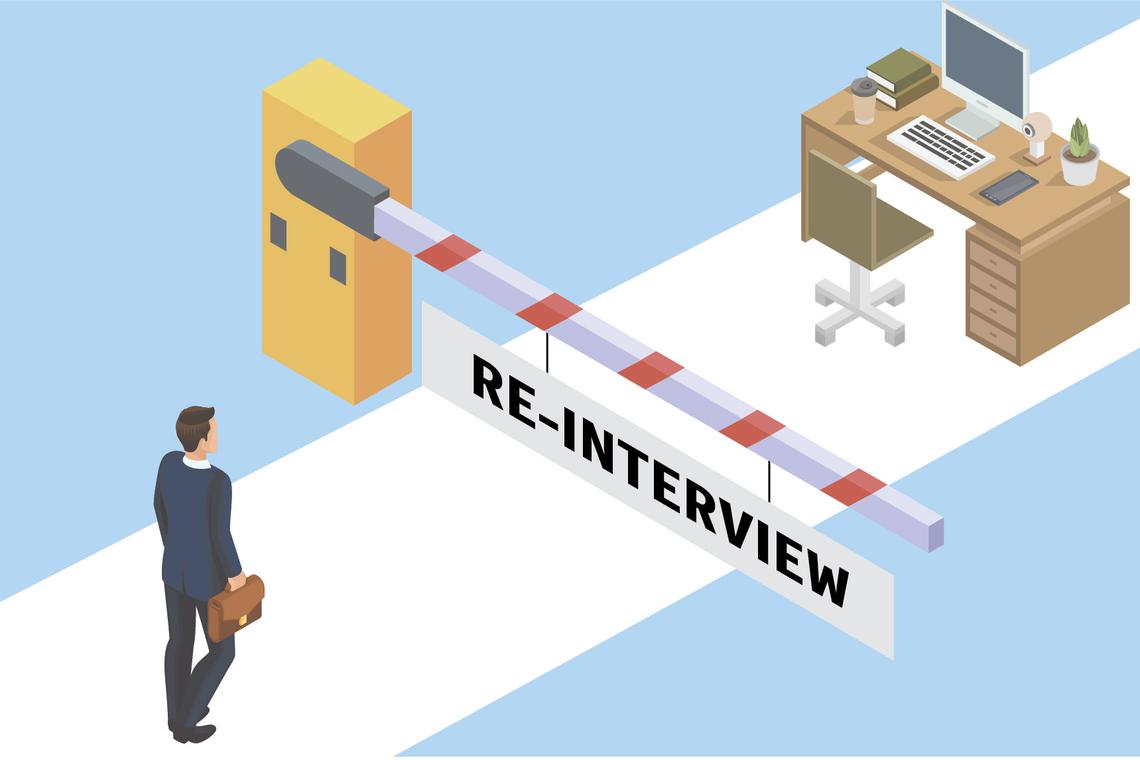Manpower correspondent Tay Hong Yi offers practical answers to candid questions on navigating workplace challenges and getting ahead in your career. Get more tips by signing up to The Straits Times’ Headstart newsletter.
Q: I was asked to re-apply for a job with my current employer. What should I do?
A: As employers adapt to changes in their market, strategy or financial muscle, the jobs on offer and what these jobs entail may change too.
As Ms Linda Teo, country manager of ManpowerGroup Singapore, says: “This can involve the creation of new roles focused on in-demand skills, the redefinition of existing roles to incorporate evolving skill requirements, and the elimination of roles where required skill sets no longer support the company’s strategic goals.”
So, rather than immediately retrenching people, companies may offer employees who are likely to be affected the opportunity to apply for new or restructured roles so that the firm can redeploy talent and minimise job losses, as well as fill the openings they have.
British bank HSBC and the BBC office in Singapore are just two recent high-profile examples.
Interviews may still be needed even for existing employees to assess their suitability for the change in responsibilities and skills required, Ms Teo says.
Mr Foo See Yang, managing director and country head of recruitment firm Persolkelly Singapore, says that this repeat interview can help employers fairly take stock of an employee’s performance since he joined and suss out whether the worker is likely to thrive in the changed environment.
“By re-interviewing existing employees, employers can be reassured that they already have existing knowledge of the company’s work,” he adds.
Employers may also need to re-interview employees where there is a need to cut staff levels.
Mr Foo says: “In this case, employers will need to interview their staff again to decide which team members are the most valuable to retain.”
Still, both Mr Foo and Ms Teo said employees who are asked to go for an interview with their current employer should approach it as if they were speaking with a new company.
“Focus on making a good impression, highlight your best qualities and use past successes in the company as proof of why your employer should retain you,” adds Mr Foo.
Ms Teo says that internal interviews typically dedicate less time to basic company information and spend more time exploring how your current skills and experience translate into meeting the specific requirements of the new or restructured role.
In comparison, Mr Foo says, the main goal of an interview for a new position with a new employer is to showcase how your experience makes you a good addition.
Still, internal candidates should not assume their company knowledge guarantees them the role, Ms Teo cautions.
“At the same time, they should clearly articulate how their skills are transferable and how they will approach the new challenges, demonstrating their suitability for the specific requirements of the role, not just their general competence,” she says.
Mr Foo adds that employers will refer to the re-applicants’ prior job performance in deciding to let them remain.
This means dedicated employees with a good track record can draw attention to this to make their case to be employed again, he says.
He also advises workers to use the interview as an opportunity to ask why they were needed to be interviewed afresh, and if their job scope will change should the company decide to continue employing them.
“You may ask your employer if there are any areas of improvement that you can take into account.
“Since your job scope may very likely change, it is also important to clearly communicate with your employer what they expect your job duties to be in the new role.”
In Mr Foo’s experience, there has not been a large uptick in the number of companies in Singapore implementing re-interviews.
“Although companies are focusing on ensuring their employees can adapt to the changing workforce, employers are choosing to nurture and upskill their employees through training courses and SkillsFuture programmes rather than going down the route of re-evaluations,” he notes.
Supervisors may also have a clear idea of whether someone is a good fit for the openings on offer, such that re-interviews are unnecessary.
Mr Foo adds: “Furthermore, requiring re-interviews may be counterproductive, as it could affect employee morale and retention, making professionals feel insecure about their roles rather than motivated to develop their expertise.”
Have a question? Send it to askst@sph.com.sg
Join ST’s WhatsApp Channel and get the latest news and must-reads.

